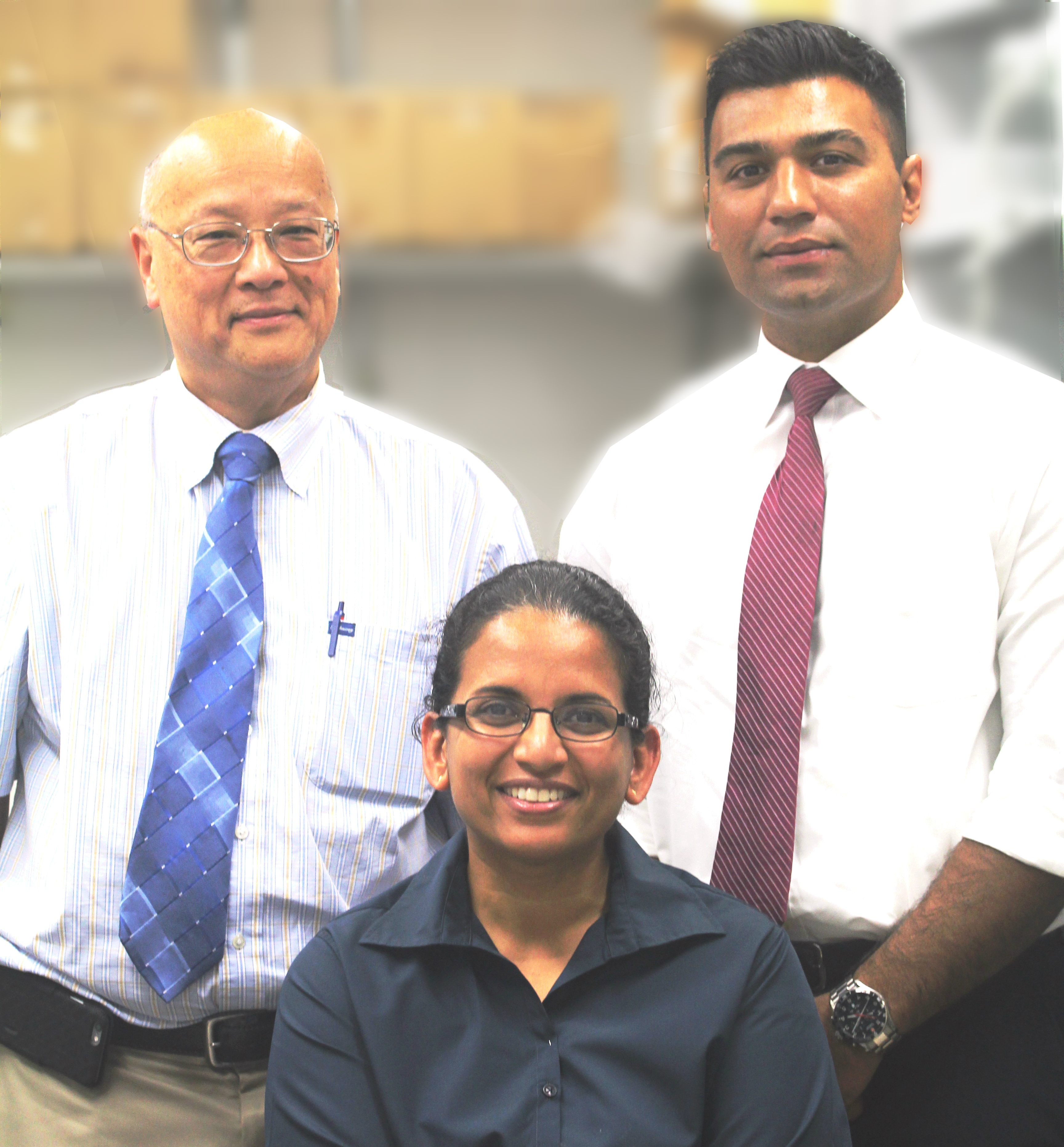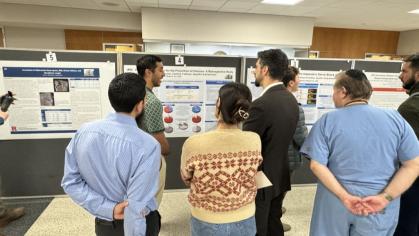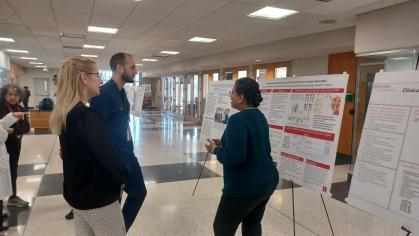Researchers Receive Funds to Explore Side Effect of Cancer Drugs
 From let, Dr. Samual Y. P. Quek; Dr. Gayathri Subramanian, Dr. Junad Khan.
From let, Dr. Samual Y. P. Quek; Dr. Gayathri Subramanian, Dr. Junad Khan.
RSDM researchers received a $40,000 grant to study prevention and treatment of a severe bone disease of the jaw that strikes cancer patients as a side effect of medication.
Medication-related osteonecrosis of the jaw (MRONJ) often affects victims of metastatic breast cancer, multiple myeloma and prostate cancer who are on medications to manage the disease after it has spread to the bone. The most common treatments are bisphosphonate and denosumab.
The painful illness includes symptoms such as dead bone in the jaw, abscesses and in advanced stages of the disease, jaw fracture. It often follows invasive dental procedures, such as tooth extractions performed to prevent the spread of dental decay and gum disease.
The research, led by principal investigator Dr. Gayathri Subramanian, a faculty member in the Department of Diagnostic Sciences, is funded by a Busch Biomedical Grant awarded by the Rutgers University Office of Research and Economic Development. The Busch program is designed to enhance health-related research at Rutgers and help faculty secure additional funds from other institutions. Additional funds were provided by the RSDM Department of Diagnostic Sciences, which contributed $20,000, and Dean Feldman, who contributed $10,000 from the Office of the Dean.
There is little clinical research on prevention and treatment of MRONJ because patients are medically compromised, and it can stem from a variety of different cancers, and in rare cases, from osteoporosis, said Subramanian. This makes it hard to predict individual risk factors, so dental providers treat all cancer patients as high-risk for developing the disease. This often results in delayed and deferred dental extractions, even in cases of severe dental disease, because providers fear the onset of MRONJ.
They may also delay or deny crucial cancer therapy, such as treatment with bisphosphonates or denosumab. Subramanian's research, performed on rats, will explore the use of imaging techniques, such as PET/CT scans, to assess the severity and extent of MRNOJ before symptoms are apparent to providers. She will also investigate techniques that can possibly determine individual risk factors by examining serum samples for protein signatures indicative of MRONJ risk.
In addition, studies will examine the effectiveness of a medication called teriparatide to manage symptoms of the disease. The medication has been FDA- approved as a treatment for patients with osteoporosis and has great potential for helping MRONJ patients, said Subramanian.
Her research team includes Dr. Junad Khan, and Dr. Samuel Y. P. Quek, both faculty members from the Department of Diagnostic Sciences; Dr. Edward Yurkow of the Rutgers Molecular Imaging Center and Dr. David Reimer, a Rutgers veterinarian. Dr. Michael Goedken of Rutgers Research Pathology Services will also help with research. The Center for Integrative Proteomics Research will provide core services for the proteomics component of the research.



